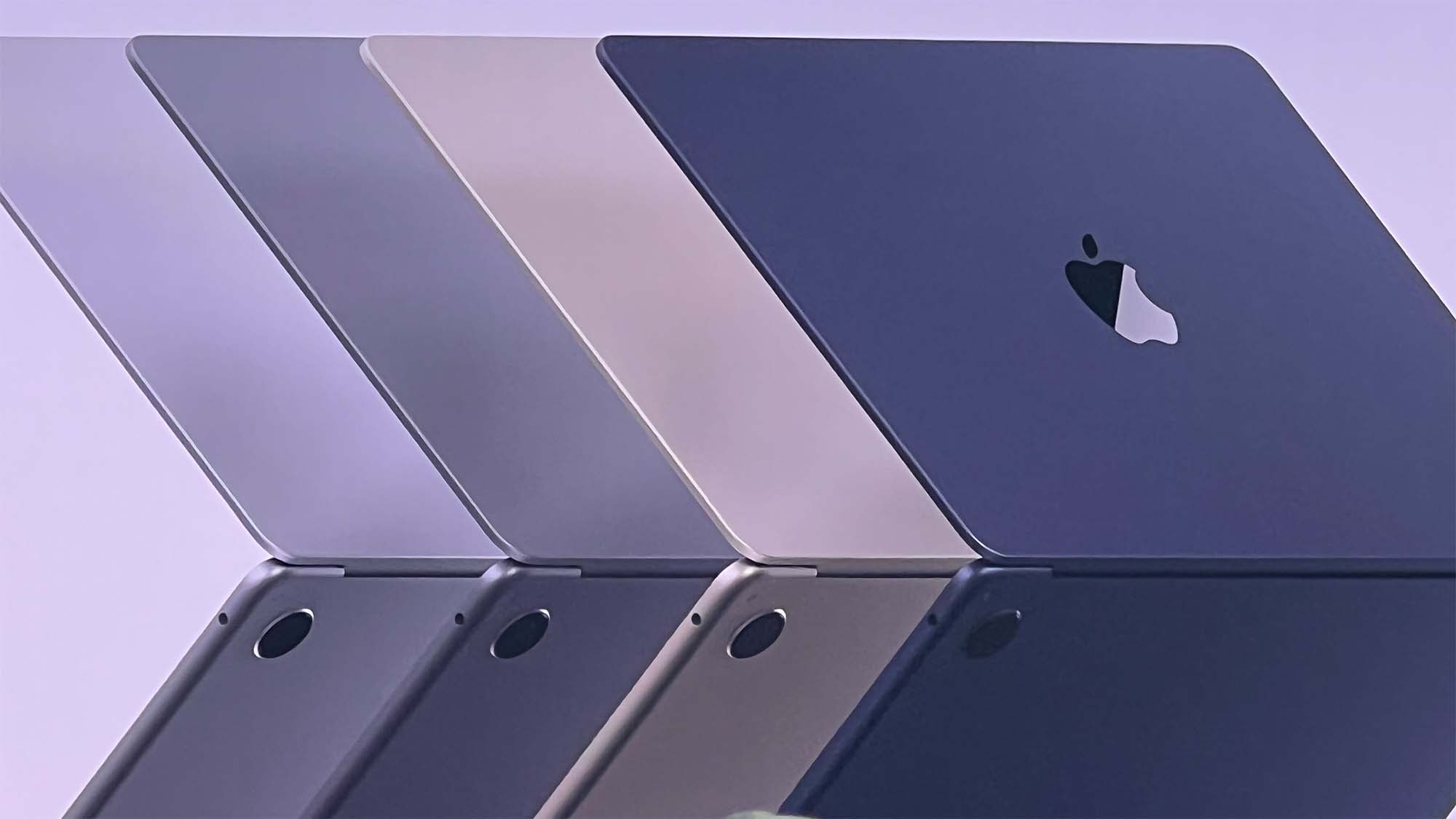Wait, did the Apple M2 chip just beat AMD at in-game performance?
A more capable gaming option than you'd think

Apple has been keen to display how its own in-house silicon copes with running games, but a recent benchmark in which the recently released M2 chip edges out an AMD Ryzen iGPU really puts its determination to enter the gaming market into perspective.
The M2 chip was benchmarked against a variety of processors from both AMD and Intel by popular tech YouTuber HardwareUnboxed, who found the new addition to the Apple line of SoCs (system-on-a-chip) outperformed the RDNA 2 iGPU featured on the AMD Ryzen 7 6800U CPU by around 10%.
It's worth noting that this specific test involves running Shadow of The Tomb Raider (released back in 2018) at a modest 1200p with SMAA (enhanced subpixel morphological antialiasing) enabled.
It also beat the same processor and the Intel Core i7-1260P in battery life when running a 4K Youtube video playback test, offering 48% more juice than AMD's offerings and a whopping 2.2x increase over Intel, so while the gaming test itself isn’t particularly demanding, it's still incredible to see what the M2 can do with a much lower power budget.
HardwareUnboxed ran many other tests across a wide range of other processors, including those from the 12th Gen, 11th Gen, Ryzen 6000, and Ryzen 5000 lineups, with varied results, so we recommend checking out the full video below if you're especially keen on knowing how the M2 fared. As WCCFTech reports, the M2 proved to be slower than the Intel Core i7-1260P and the Ryzen 7 6800U in Cinebench R23, while the M2 leads against the same Ryzen processor but loses to the Intel chip in In the Cinebench R23 Single-threaded tests.
The summary across all of the benchmarks is that while some folks are disappointed in the M2’s performance when compared to its predecessor, the M1, we’re seeing some impressive results from Apple, even when compared to the wider market. AMD and Intel will need to pay attention, or else the fruit-themed tech giant could start encroaching on markets that were previously believed to be safe.
Analysis: what does this mean for MacBook Gaming?
As exciting as these results are, Apple isn’t going to be a smart choice for AAA gaming at high resolutions. At least, not yet anyway, but I wouldn’t be surprised if that’s a market it's determined to reclaim. After all, some of the earliest PC games were not only playable on Apple computers, they were built and designed on them.
Get daily insight, inspiration and deals in your inbox
Sign up for breaking news, reviews, opinion, top tech deals, and more.
The PC gaming industry has changed a fair bit since the ’90s so this won’t be an easy task, but since the M1 proved its capabilities were seeing more and more games appearing on the platform. We have a full list of the best M1-compatible video games and if you typically zone out when Apple announcements are made you might be surprised to know that big titles such as EVE Online, Borderlands 3 and even Fortnite don’t just run on the M1 - they run well.
I’d still like to see Apple take a jab at creating a dedicated graphics card if they want to get serious about Mac-based gaming though, regardless of how impressive the M1 and M2 chips have proven to be. iGPUs are used to play games of course, but most PC gamers will at some point upgrade to a discrete option, regardless of if that's a new gaming laptop or building a gaming computer from scratch.
The M2 isn’t going to bring down years of hard work on the PC platform, but it is a very good sign of things to come - at least that is, if you’re a fan of the Apple ecosystem. For those who are critical, let's hope this is the kick up the butt that AMD and Intel needed to create something innovative to compete.
Jess is a former TechRadar Computing writer, where she covered all aspects of Mac and PC hardware, including PC gaming and peripherals. She has been interviewed as an industry expert for the BBC, and while her educational background was in prosthetics and model-making, her true love is in tech and she has built numerous desktop computers over the last 10 years for gaming and content creation. Jess is now a journalist at The Verge.
